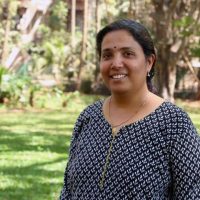Session 4: Panel Discussion
Digital Inclusion Policies, Community Choices and Bridging the Internet Coverage Gaps in Sarawak

COVID-19 exposed the wide chasm between the connected and the unconnected in Sarawak, like others in many regions of the world. With low population density and with rural communities scattered across remote areas, Sarawak is a geographically challenging region for private telecommunication companies and the current spectrum policies are not able to address the issue of the digital divide in remote Sarawak. Therefore, the Sarawak government has decided to invest in establishing a huge network of telecommunication towers and requested a Universal Service Provision (USP) license to establish its own telecommunications company. In this session, we will have two panelists discussing the issues of digital access, sustainability of services, and the needs of engaging indigenous communities in devising long-term digital inclusion policies. In accordance with the theme of the conference, “bonding, bridging and linking”, the speakers will discuss:
- Policy challenges and plans for digital inclusion in the remote communities of Sarawak
- Best practices to create an enabling regulatory environment for community networks
- Community choices and preferences for digital inclusion
Panelists

Carlos Rey-Moreno, after working in providing connectivity to remote health care centres in Latin America, has devoted the last 8 years to study, develop and support community networks around the world. As part of his PhD he co-founded Zenzeleni Networks, zenzeleni.net, and studied the main drivers that could make a community network in rural South Africa sustainable and scalable. After obtaining his doctorate in 2015, he went an studied the common denominators across community networks in Africa, producing a seminal report on the topic, and co-organised the first four editions of the Summit of Community Networks in Africa. For the last three years he has been with the Association for Progressive Communications, where he co-leads its community networks initiative, overseeing projects in Latin America, Africa and Asia. He also coordinates its policy and regulatory work to create a more enabling regulatory framework for local operators and community networks. As part of that, he has provided training to regional regulatory associations and policy makers in Africa, authored reports and written submissions to public consultations on the topic and participated frequently as speaker and convener in internet governance and similar telecommunications policy fora.

Dr. Sarbani Banerjee Belur, is currently the Asia Regional Coordinator for Association for Progressive Communications (APC) for the Community Networks Connecting the Unconnected project. She is also the Senior Research Scientist hosted by Spoken Tutorial project at the Indian Institute of Technology Bombay, Mumbai, India. She has been working in the domain of rural connectivity for the past 6 years and have been associated with the Gram Marg project in the Department of Electrical Engineering, IIT Bombay. She holds a PhD in Demography from the University of Groningen, The Netherlands. She has published in international conferences, journals, contributed book chapters and has authored a book in the areas of demography and social issues around rural connectivity. Her current work involves increasing digital outreach to remote and rural areas of India, deployment of new technology alternatives for the middle and last mile internet connectivity, development of a sustainable models supporting Public - Private - Panchayat - Partnership (4-P model), seeding the growth of community networks, gender and access, developing community technologies and impact assessment studies of connectivity in the lives of people. The impact studies that she focuses on are based on gender, social and economic impacts of connectivity.

Adiman joined the Malaysian Communications and Multimedia Commission in October 2003. Prior to MCMC, Adiman served in executive role in several subsidiaries of MBf Holdings, focusing on operational audit.He was briefly attached to Chairman Office and Policy Division in MCMC Cyberjaya for 3 years prior to his current role. He has served in various roles for the past 18 years with the Commission, in the areas of compliance, policy and digital infrastructure development, both at the State level and MCMC Headquarters.He has worked on numerous digital infrastructure initiatives, mainly on mobile and fixed broadband infrastructures rollout in Sarawak. In the early days of formation of Sarawak Corridor of Renewable Energy (SCORE), he was involved in the planning and development of digital infrastructure projects for Samalaju Industrial Park and Tanjung Manis Halal Hub and Mukah. Adiman holds a BA Human Sciences from International Islamic University Malaysia and MSc. Data Science from The University of Sheffield, UK.

Gary Loh Chee Wyai has 13 years of experience as an academician, researcher and practitioner of ICT for Rural Development (ICT4RD). After graduation in 2008, he started his career as an Information Technology Project Manager in UNIMAS and helped in deploying Internet services in Ten remote sites of East and West Malaysia. He joined UCTS in 2014 and established the first Broadband over Power Line (BPL) project for providing internet to Bawang Assan community of Sarawak. Marcathy Gindau is the president of Bawang Assan Homestay Association. He is a promoter, practitioner and explorer of digital technologies for transformation of tourism sector. Since 2016, Gary and Mac have been working together to establish meaningful internet connectivity in the Bawang Assan community and to promote the place as a tourism destination of Iban culture and heritage.
Moderator

Ts. Daniel Tan Yong Wen, University College of Technology Sarawak





